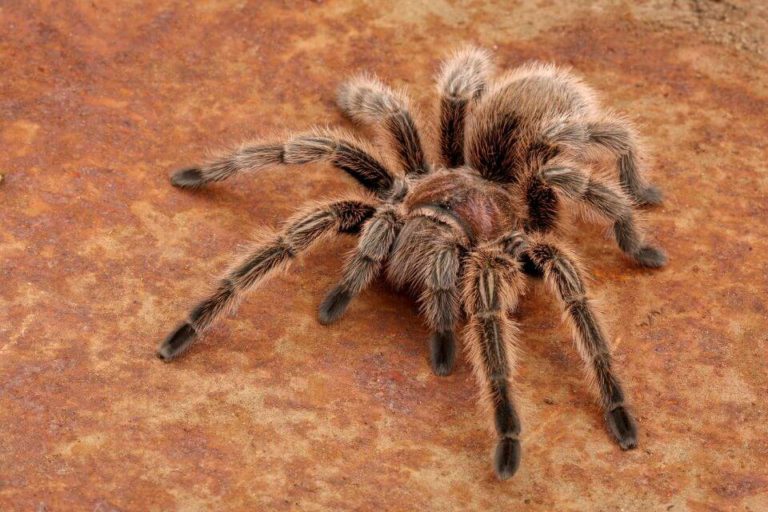The Beginners Guide to Caring for Exotic Animals as Pets
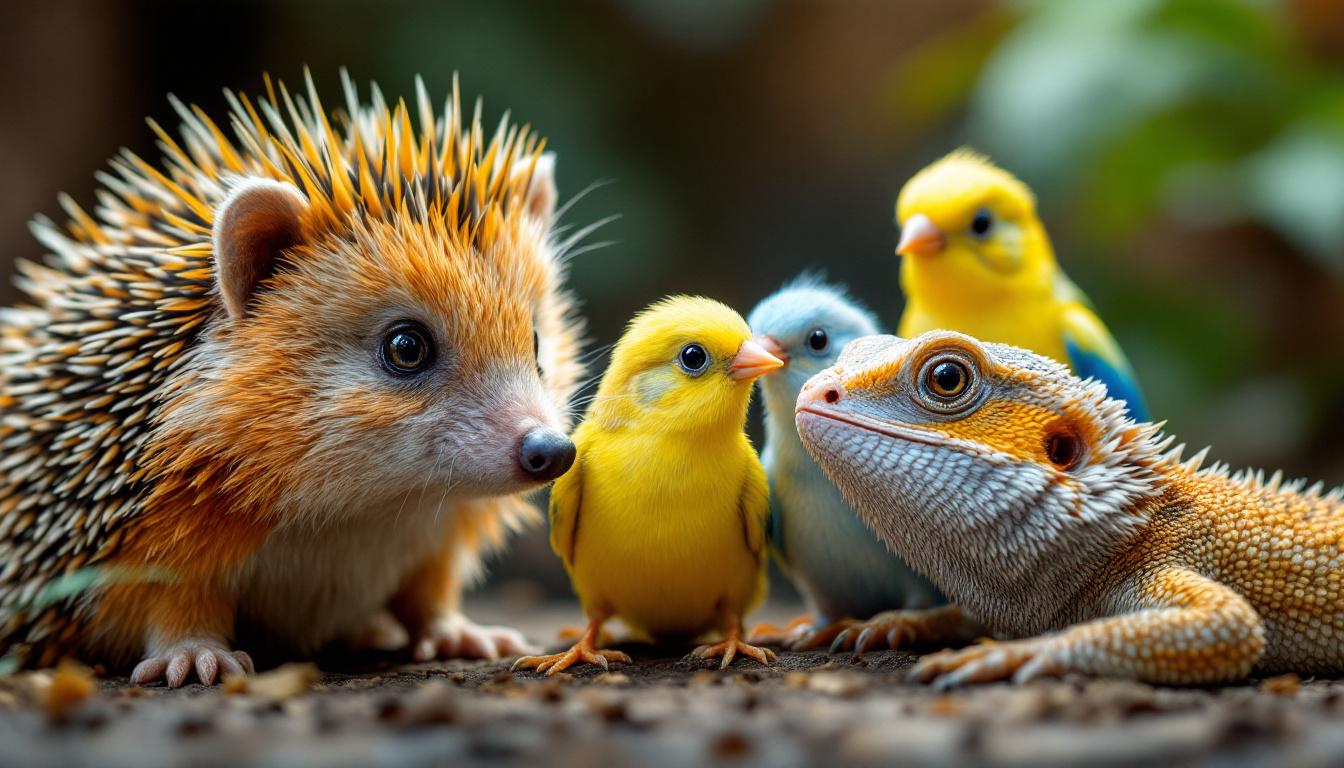
Have you ever thought about having a pet that’s a bit out of the ordinary pets? With the rising trend of keeping exotic animals as pets, many are interested owning something truly unique.
There’s a certain thrill in the idea of sharing your home with a creature that turns heads and sparks conversations. But with that comes the essential need for responsible ownership. Exotic animals often have specific needs that require careful attention.
This isn’t just about having a cool companion—it’s about ensuring their health and happiness in an environment that’s far removed from their natural habitat.
So, before you jump on the bandwagon, let’s explore what it really means to have exotic animals as pets and why thoughtful consideration is crucial.
What are Exotic Animals
Exotic animals are non-native species, often kept as pets despite their wild nature. They range from reptiles like snakes and lizards to birds like parrots and even big cats.
These animals aren’t domesticated, which means they might have unique care needs and can pose risks to their owners. Many exotic pets require special diets, proper habitat settings, and sometimes even permits to own legally.
While fascinating, these creatures aren’t the same as your typical cat or dog and often need owners to have more knowledge and commitment. Before bringing any home, it’s crucial to understand the responsibility involved.
Categories of Exotic Pets
Exotic animals as pets fall into several intriguing categories. Each type brings its own wonder and challenges, so understanding these differences is key to making the right choice for you and your lifestyle.
Reptiles
Reptiles can be a fascinating choice for exotic pet owners. Imagine bringing home a lizard with vibrant skin or a snake that gracefully slithers through your fingers. These pets often include species like geckos, bearded dragons, and even certain types of turtles. Their appeal is in their uniqueness—a living piece of art. But, they require precise habitats, often needing specific temperature and humidity levels.
Birds
The allure of exotic birds lies in their beauty and intelligence. Parrots, for example, are not only stunning to look at but are also known for their ability to mimic human speech. Bursts of color spread through your home when you have a bird as a pet, along with a melody that uplifts the spirit. However, birds need ample space to move and exercise, and their social nature requires significant interaction.
Small Mammals
Small mammals in the exotic pet category include creatures like sugar gliders, ferrets, and hedgehogs. These pets are a delightful mix of cute and quirky. They often have fewer husbandry needs compared to reptiles, but they still demand plenty of attention and care. Small mammals can fit seamlessly into a home, but they come with specific dietary requirements and social needs that can’t be ignored.
Taking care of exotic animals as pets can be incredibly rewarding but requires commitment. Each of these categories demands not only adequate research but also a profound readiness to offer the best care possible. Choosing the right type of exotic pet involves weighing their needs against what you can provide and ensuring a harmonious fit for both you and your new companion.
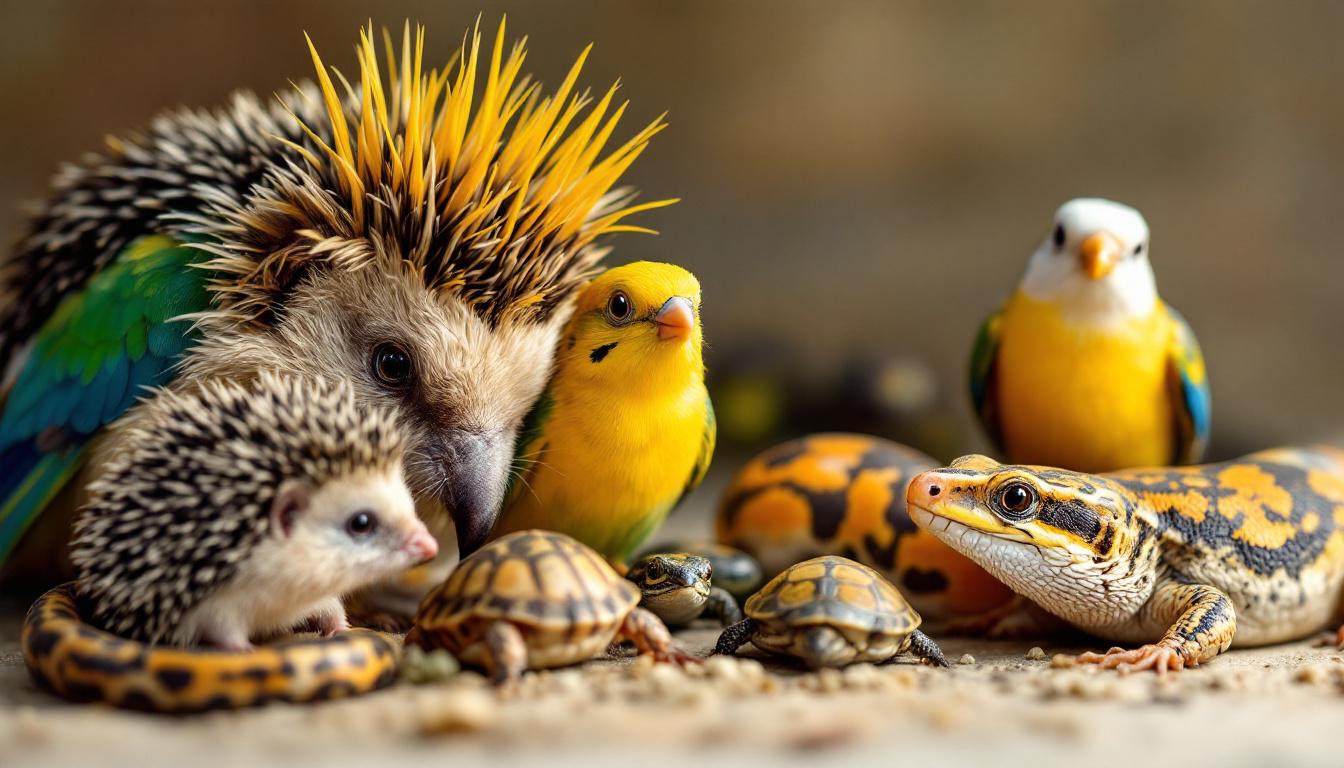
Popular Exotic Animals as Pets
Navigating the world of exotic animals as pets is like opening a door to a universe filled with color, sound, and unique experiences. These aren’t the usual suspects found in every household. Instead, they come with their own set of compelling stories and particular requirements. Let’s get to know some of the most popular exotic pets and what it takes to care for them.
Reptiles: Friends with Scales
Reptiles bring a certain mystery and allure into our lives. Species like snakes, lizards, and turtles are among the most sought-after reptiles for pet enthusiasts. Each has its own charm, and caring for them is much about creating the right environment as it is about feeding them.
- Snakes: Often misunderstood, snakes like the ball python are known for their gentle demeanor. However, they require secure habitats with the right temperature gradients to thrive.
- Lizards: Bearded dragons and geckos are favorites. They bring a colorful flair and a bit of desert landscape into your home. Their care includes UVB lighting and a diet rich in insects.
- Turtles: These shelled wonders need aquatic setups or dry land environments depending on their species and thrive with a varied diet of greens and proteins.
Reptiles can be low-maintenance companions, but understanding their natural habitat and recreating it at home is crucial.
Birds: A Symphony of Feathers
Exotic birds, from the intelligent parrots to the melodious finches, bring vibrancy and interaction unparalleled by other pets. They are engaging, social creatures that quickly become part of the family.
- Parrots: Known not just for their beauty but their ability to mimic, parrots like African Greys and Cockatoos require attention and mental stimulation to prevent boredom.
- Finches and Canaries: They might be quiet in comparison, but their songs are an exotic tune. These birds need space to fly and a good diet high in seeds and fresh fruits.
Owning a bird is like adding a splash of the wild to your home, but with that comes the commitment to their well-being and happiness.
Small Mammals: Bundles of Personality
For those not ready to commit to reptiles or birds, small mammals like sugar gliders and hedgehogs offer an alternative. Their size doesn’t compromise their personality or their care requirements.
- Sugar Gliders: These social nocturnal creatures require lots of interaction and a diet rich in fruits, insects, and commercial food.
- Hedgehogs: These spiky little critters are less social but can be delightful with their unique quirks. A diet of insects and specially formulated kibble is key.
Small mammals are often considered straightforward to care for, but they come with specific social needs and dietary demands.
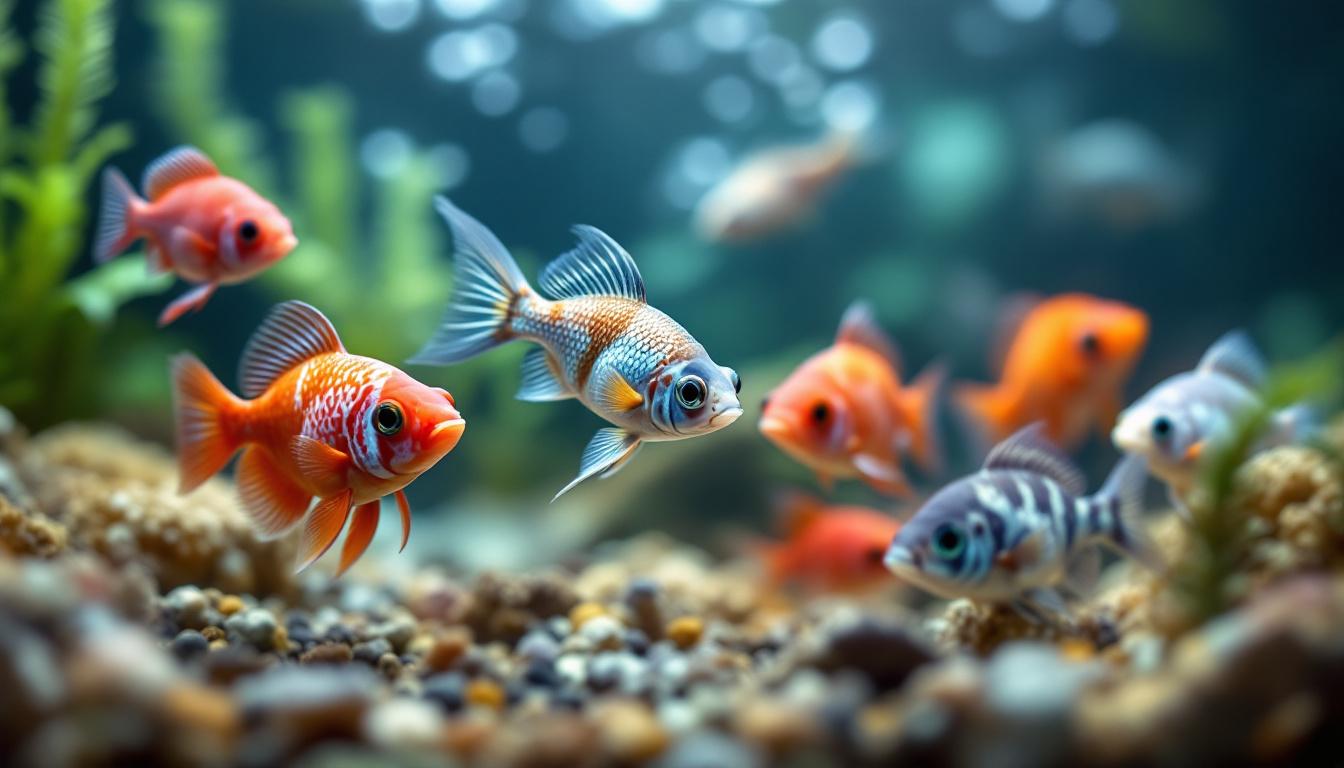
Aquatic Pets: Life Beneath the Surface
Aquatic pets can be mesmerizing, offering a glimpse into underwater worlds that are both calming and intriguing. From vibrant fish to captivating invertebrates, they add serenity to any room.
- Exotic Fish: Species like bettas and discus fish are popular choices due to their vivid colors and distinctive patterns. They require clean, well-maintained water and specific diets.
- Aquatic Invertebrates: Creatures like shrimp and snails are fantastic additions, keeping tanks clean while adding a unique flair.
Aquatic pets require commitment to water quality and a balanced ecosystem, but the tranquility they provide is a rewarding payoff.
Choosing to welcome exotic animals as pets into your life means embarking on a journey of learning and dedication. Each brings its own beauty and challenge and finding the right fit enriches not only your life but the life of the animal too.
Benefits of Owning Exotic Animals
When you decide to own exotic animals as pets, you’re not just adding a new member to your household—you’re inviting a world of unique experiences. These animals can offer companionship that’s distinct from the usual furry friends and can be a source of endless fascination. They bring with them opportunities to learn and grow, making them a rewarding choice for those ready for the responsibility.
Unique Companionship
Owning an exotic pet means embracing a relationship like no other. Many of these animals form strong bonds with their owners, offering companionship that’s as unique as they are. Unlike traditional pets, exotic animals often rely on you to recreate their natural habitats, which can lead to a profound sense of connection. Ever watch a parrot mimic your laughter or see a snake curl contentedly around your arm? These moments create a bond that’s nothing short of extraordinary.
Exotic pets express affection in ways that can surprise you:
- Birds might serenade you with songs.
- Reptiles can show trust by relaxing in your presence.
- Small mammals may seek comfort in your company.
These bonds can be deeply rewarding. They teach us patience and the value of understanding a creature’s unique personality.
Educational Value
Caring for exotic animals as pets opens the door to endless learning. These creatures require specialized knowledge, from dietary needs to habitat conditions—there’s always something new to discover. For families, particularly those with kids, owning an exotic pet can turn your home into a living classroom. Kids can learn about biology, geography, and conservation all through the care of a single animal.
Here are some of the ways they enrich our lives educationally:
- Scientific Discovery: Learning about their species, habits, and history enhances our understanding of biodiversity.
- Environmental Awareness: Their care often highlights the importance of conservation and habitat preservation.
- Problem-Solving Skills: Meeting the needs of an exotic pet often involves creative thinking and problem-solving.
Owning exotic animals isn’t just about having a pet; it’s about embracing a lifestyle of curiosity and knowledge. These creatures teach us not just about themselves but about the world we share with them.
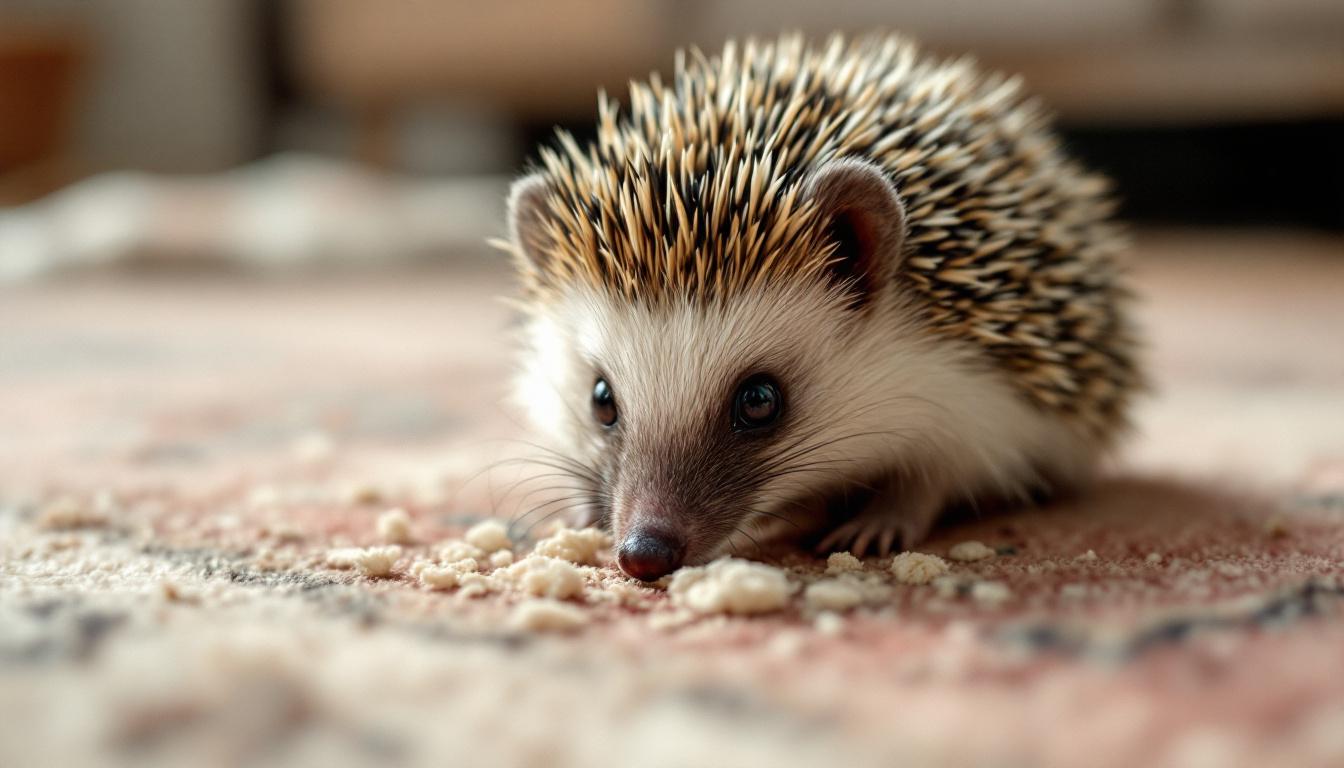
Challenges of Keeping Exotic Animals
Keeping exotic animals as pets can be an adventure, but it’s not without its hurdles. Thinking about parrots that chat back or snakes that glide gracefully? Fascinating, right? But, these unique critters also come with unique challenges. It’s crucial to explore the nitty-gritty details before you bring one into your home.
Legal Considerations
Owning exotic animals isn’t as simple as picking one up from the store. Many regions have strict laws about which exotic pets are allowed. Before committing, check your local regulations to ensure you’re compliant. Breaking these laws can lead to hefty fines or even the heartbreaking confiscation of your pet.
- Permits are often required: Some animals need special permits to be kept legally.
- Certain species are completely banned: These rules vary widely depending on where you live.
- Endangered species laws: These can also affect your choices, with strict penalties for violations.
Navigating these legal waters requires homework and maybe even a conversation with a legal expert or local wildlife authority.
Cost of Ownership
The price tag of owning exotic animals isn’t just about the purchase price. There are ongoing costs that can add up quickly. From special diets to unique housing setups, these animals need more than just a cozy bed and bowl of kibble.
- Specialized food: Many exotic pets require a diet that’s significantly different from traditional pets.
- Veterinary care: Exotic animal vets can be pricier and harder to find.
- Enclosures and habitats: Creating a suitable living environment often means shelling out for custom setups.
Budgeting for these expenses is essential to ensure you can provide the care your new pet needs.
Specialized Care Requirements
Caring for exotic animals means becoming part zookeeper, part scientist. These pets have needs that go beyond the basics, and understanding these is crucial to their well-being.
- Temperature and humidity control: Many reptiles and amphibians require specific climate conditions.
- Social interaction: Birds and some small mammals need a lot of attention and stimulation.
- Special habitats: From aquariums to large aviaries, exotic pets often need environments that mimic their natural habitats.
Ignoring these needs isn’t an option. These animals depend on us to recreate the conditions they’re used to in the wild, and that means doing plenty of research to get it right.
As exciting as it is to own exotic animals as pets, it’s a responsibility that demands careful consideration of the laws, costs, and care that’s involved. For those who are ready and willing, the rewards can be as unique and extraordinary as the animals themselves.
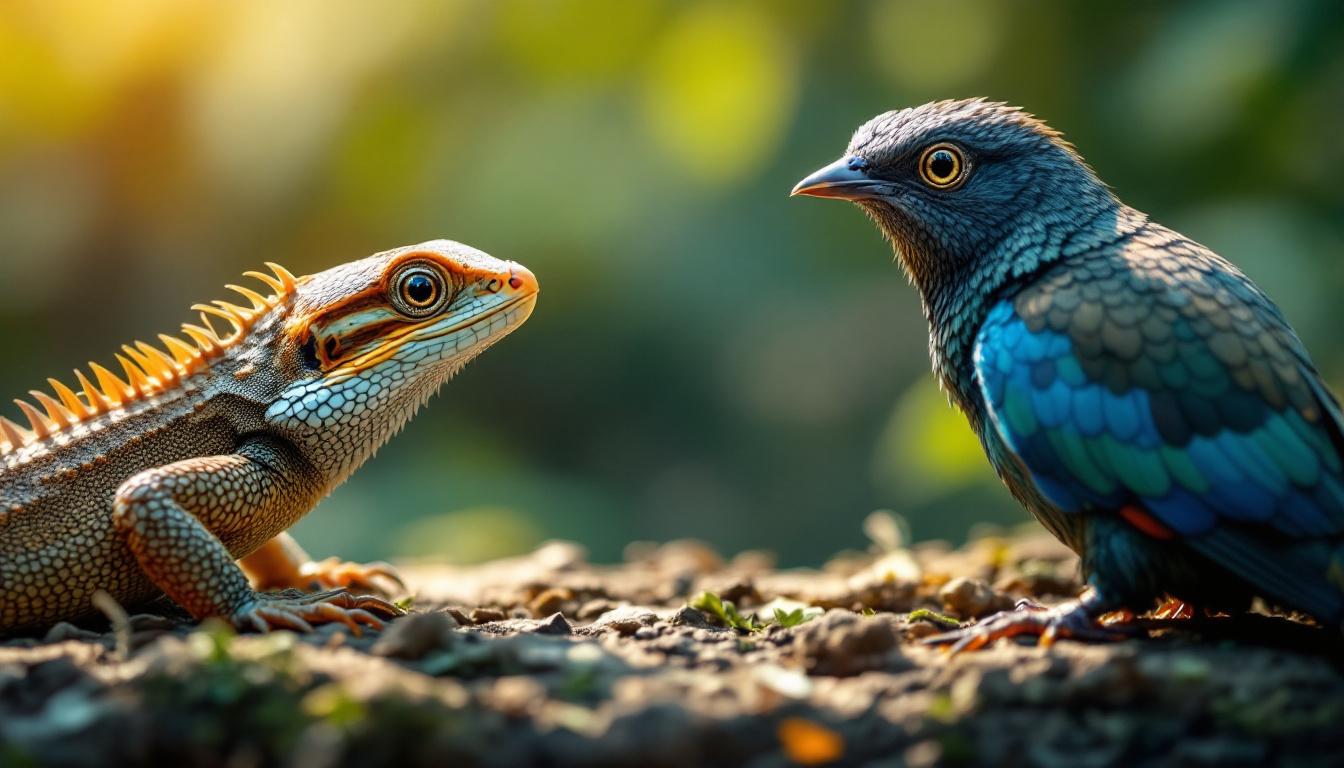
How to Choose the Right Exotic Pet
Choosing an exotic pet is exciting, but it’s not a decision to be made lightly. Picking the right companion means thinking about more than just what looks cool. Let’s break down some of the key steps to help you make a wise choice.
Research and Preparation
Imagine diving into a world filled with exotic animals. It’s like opening a book with endless chapters of knowledge. Before you bring any exotic pet home, research is your best friend. With so many unique needs, understanding what each animal requires is crucial for their well-being and your peace of mind.
Here are some things I always consider:
- Species-Specific Needs: Every exotic pet has unique needs. From diet to habitat, knowing these details is essential.
- Lifespan and Growth: Some exotic animals live much longer than traditional pets, and their size can change dramatically over time.
- Health Concerns: Understanding potential health issues and finding a vet experienced with exotic animals can save you a lot of worries later.
Preparation isn’t just about having the right setup or food. It’s about having the right mindset and being ready to commit to the care these fantastic creatures deserve.
Assessing Your Lifestyle
Matching a pet’s needs with your lifestyle is like creating a puzzle where every piece has to fit. Exotic animals come with a variety of demands, and it’s essential to ensure those align with what you can offer.
Think about your daily routine:
- Time Commitment: Exotic pets like parrots or sugar gliders need lots of interaction. If you’re away from home a lot, these might not be the best fit.
- Space Requirements: Some pets, such as reptiles and birds, need specific enclosures that may require considerable space.
- Budget Considerations: Exotic pets can be expensive, both in terms of initial setup and ongoing care. Make sure your finances can handle the commitment.
By assessing these factors, you can find an exotic pet that not only thrives in your care but also enriches your life with joy and learning. It’s about finding the right match, one that suits both your world and theirs.
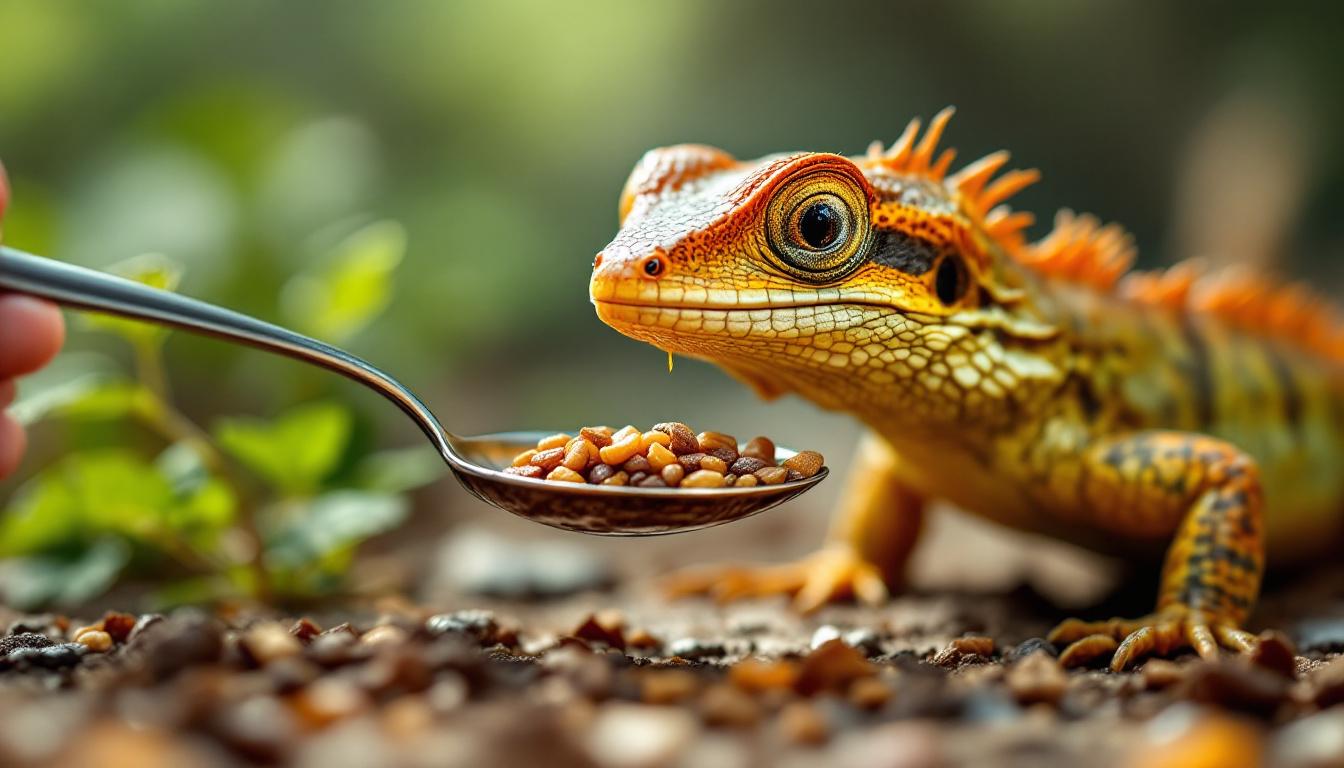
Caring for Your Exotic Pet
Having an exotic animal as a pet is undeniably exciting, but it comes with a set of responsibilities that are as unique as the pets themselves. Providing the right care is important to ensure the well-being and happiness of your exotic companion. Let’s take a closer look at some fundamental aspects you need to consider.
Habitat Setup
Creating a suitable habitat for your exotic pet is like designing a tiny slice of their native environment right in your home. These animals often have very specific habitat requirements that need to be met to keep them healthy and content.
- Temperature and Humidity: Many exotic pets, like reptiles and amphibians, need controlled temperature and humidity levels. Keeping a thermostat and hygrometer in their enclosure can help maintain the right conditions.
- Lighting: Some reptiles need UVB lighting to synthesize vitamin D3, crucial for bone health. It’s not just about illuminating their space—it’s about replicating natural sunlight.
- Space and Enrichment: Birds, for instance, require room to spread their wings, while small mammals might need tunnels and hideaways for exploring. Think jungle gym meets cozy retreat.
Ensuring your pet’s habitat is well-equipped and mimics their natural habitat can prevent stress-related issues and keep them thriving.
Feeding and Nutrition
Just like with habitat setup, the dietary needs of exotic pets can vary widely and are crucial for their health. Understanding their specific nutritional requirements is a key part of pet ownership.
- Specialized Diets: Each type of exotic animal often demands a unique diet. For example, many reptiles are insectivores, while some birds require a balanced mix of seeds, pellets, and fresh produce.
- Consistent Feeding Routines: Developing a consistent feeding schedule helps maintain their health. Whether it’s daily or weekly feeding, consistency supports their digestive and metabolic health.
- Supplementation: Certain exotic pets might need additional vitamins and minerals. Reptiles, for instance, often need calcium supplements to prevent deficiencies.
Feeding your exotic pet properly is more than just a chore; it’s a delicate science that keeps them healthy and happy. Their diet is a window into their natural behavior and needs, making it a fascinating aspect to master.
Understanding and meeting the needs of your exotic pet is both a challenge and an incredibly rewarding experience. By providing a thoughtful habitat and attention to their diet, you’re not just a pet owner—you’re a caretaker of a unique little piece of the world.
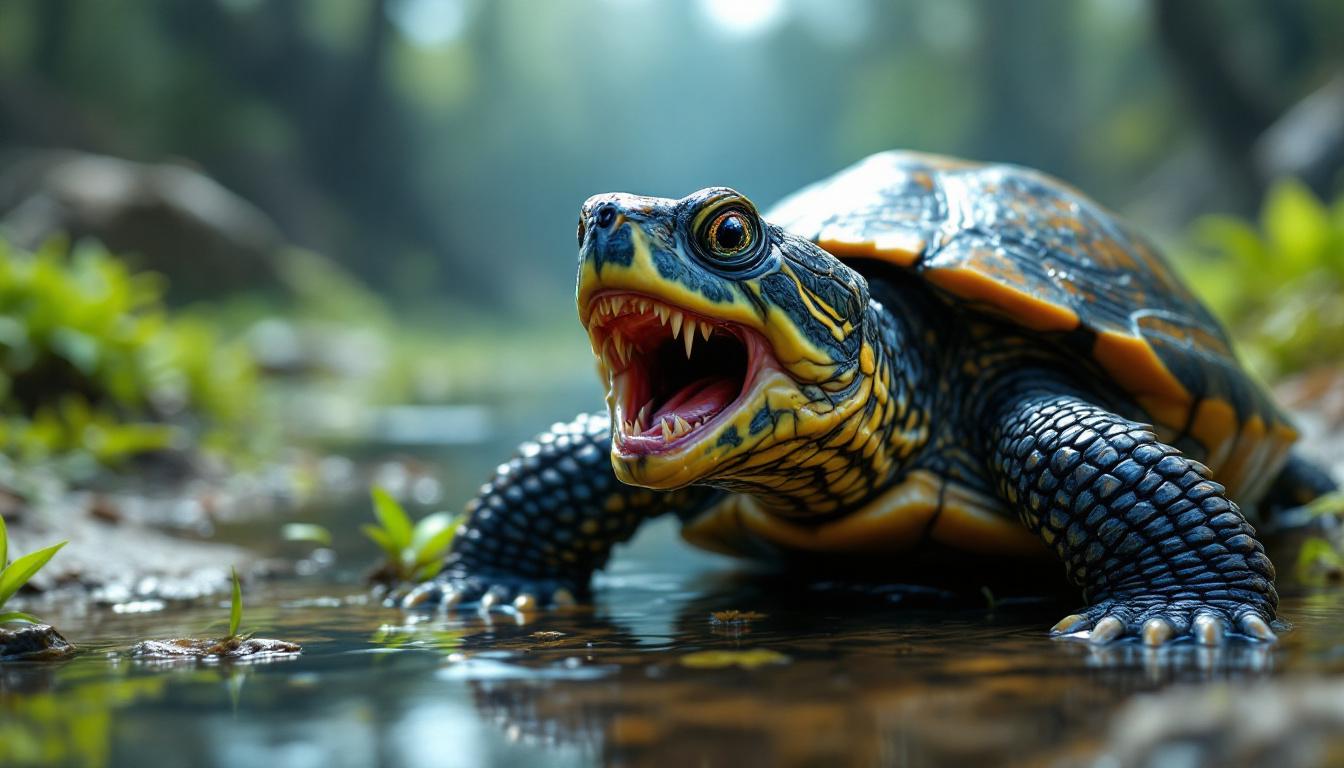
Misconceptions About Exotic Pets
Exotic pets can be a source of joy and fascination, yet they’re often misunderstood. Many people assume that they require the same care as traditional pets, but this isn’t always the case. In this section, we’ll tackle some of the common misconceptions surrounding exotic pets and shed light on what it really takes to keep them healthy and happy.
Understanding Exotic vs. Traditional Pets
It’s easy to think of exotic pets like they’re just unusual cats or dogs. The reality is that their care can be quite different and sometimes more demanding. Here’s where the misconceptions usually start.
- Unique Habitats: While traditional pets can thrive in most home environments, exotic animals often need a habitat that’s carefully controlled. Take reptiles, for instance—they need specific temperature and humidity levels, like their natural environments. Think of it like turning your home into a mini desert or rainforest!
- Dietary Needs: Unlike cats or dogs, many exotic pets require specialized diets. Parrots might enjoy a mix of seeds, fruits, and pellets, while your pet snake could feast on thawed rodents. It’s kind of like comparing your pet’s diet to a specialized menu rather than an all-you-can-eat buffet.
- Behavior and Social Needs: Exotic pets often have behaviors and social needs that differ from the norm. Birds, for example, might need more social interaction than a solitary cat, while a hedgehog might prefer the nighttime hours to explore.
So, why does this matter? Understanding these differences is crucial to providing the best possible care. It’s not just about keeping your exotic animal alive—it’s about helping them thrive in an environment that’s as close to their natural home as possible. This means research and preparation are key steps before bringing an exotic pet into your world.
Are you up for the challenge? Exotic pets can be amazing companions, but they require a commitment to learning and adapting to their unique needs. Understanding the difference between exotic and traditional pets ensures you’re ready to give them the care they truly deserve.
Frequently Asked Questions About Exotic Animals as Pets
Exotic animals as pets can create a unique and exciting dynamic in your home, but this fascinating journey comes with its fair share of questions. There’s a whole world of wonder and doubt that circles around owning these extraordinary creatures. Below, I tackle some of the most common queries I come across, helping to illuminate the path for current and future exotic pet owners.
Are Exotic Animals as Pets Legal?
This question tops the list for many prospective exotic pet owners. The legality of owning exotic animals varies wildly depending on your location. Some states or countries have strict regulations, while others are more lenient. It’s essential to:
- Check local laws: Research the specific legislation in your area. It’s your responsibility to ensure you’re meeting all legal requirements.
- Obtain necessary permits: If your chosen pet requires a permit, ensure you have it before bringing the animal home. Getting caught without the right paperwork can lead to hefty fines or losing your pet.
How Do I Choose the Right Exotic Pet?
Choosing the perfect exotic pet involves a bit more than impulse. You should consider:
- Your lifestyle: Does your daily routine allow you to meet the needs of the pet you’re interested in?
- Space availability: Some exotic pets need large enclosures or specific environmental conditions.
- Financial commitment: Exotic pets can be costly, from initial setup to continuous care.
Each exotic animal comes with its own demands, so it’s crucial to align those with what you can realistically provide.
What Are Some Common Care Requirements?
The care requirements for exotic animals as pets can vary significantly based on their type, but some common needs include:
- Specialized diets: Exotic pets often require specific foods that aren’t always available at your neighborhood pet store.
- Temperature control: Many need strict heat and humidity levels to mimic their natural habitats.
- Veterinary care: Finding a vet experienced with exotic pets might take some digging, but it’s an essential step in ensuring your pet’s health.
Understanding these requirements before bringing an animal home helps prevent future issues and ensures a happy pet.
Is It Safe to Own Exotic Animals?
Safety is a genuine concern, especially for families with small children. The safety of owning exotic animals as pets comes down to:
- Choosing appropriate species: Some exotic animals are more suited to family life than others.
- Proper handling and care: Learning how to safely interact with your pet is key. Many exotic animals can be quite tame with proper socialization.
- Secure housing: Ensure enclosures are escape-proof and meet all the animal’s needs to prevent accidents.
When approached correctly, owning an exotic pet can be safe and rewarding.
Exploring these frequently asked questions helps demystify the world of exotic pets, making it easier for you to decide if such a commitment fits into your life. Whether you’re just curious or seriously contemplating adopting an unfamiliar animal friend, gaining this knowledge empowers you to make informed choices.
Conclusion on Exotic Animals as Pets
Caring for exotic animals as pets is truly an adventure. They bring an element of wonder into our lives that’s hard to find elsewhere. But with that wonder comes responsibility. Whether it’s the vibrant colors of a parrot or the serene glide of a snake, each exotic pet has its own charm and needs that must be fully understood and respected.
The Journey of Pet Ownership
Owning an exotic pet isn’t like your average journey. It’s a path filled with unique experiences and a requirement for constant learning. As pet owners, we must commit to providing not just a home but an environment where our pets can thrive. Owning an exotic animal is like nurturing a relationship—it takes time and effort, but the rewards are immeasurable.
- Connection: The bonds you form with exotic pets can be incredibly deep and fulfilling. They offer companionship that’s different but equally rewarding as any traditional pet.
- Personal Growth: Caring for these animals often involves learning new skills and broadening your knowledge. It’s a growth journey for both owner and pet.
The Call for Responsibility
As much as these creatures enrich our lives, it’s vital to remember that their needs differ significantly from those of more common pets. Being informed, prepared, and committed is key to ensuring their well-being.
- Do Your Homework: Understanding the specific care requirements is essential. What works for one pet might not work for another, so take the time to learn.
- Be Ready: With great pets come great responsibilities. From legal considerations to unique dietary needs, preparing yourself ensures a harmonious relationship.
Reflecting on the Experience
Owning exotic animals as pets means embracing the quirks and surprises they bring. As I reflect on this journey, I remind myself that it’s about more than just adding a pet to the family. It’s about becoming part of a broader understanding of life, nature, and the roles we play in them.
- Are you ready to embrace the responsibility? Each pet, each animal, brings something irreplaceable into our lives. Whether it’s through their unique personalities or the educational value they offer, exotic pets challenge us to be better, more informed caretakers.
Let’s keep these considerations at the forefront when thinking about owning exotic animals as pets. They’re not just pets—they’re ambassadors of the natural world we strive to understand and protect.


